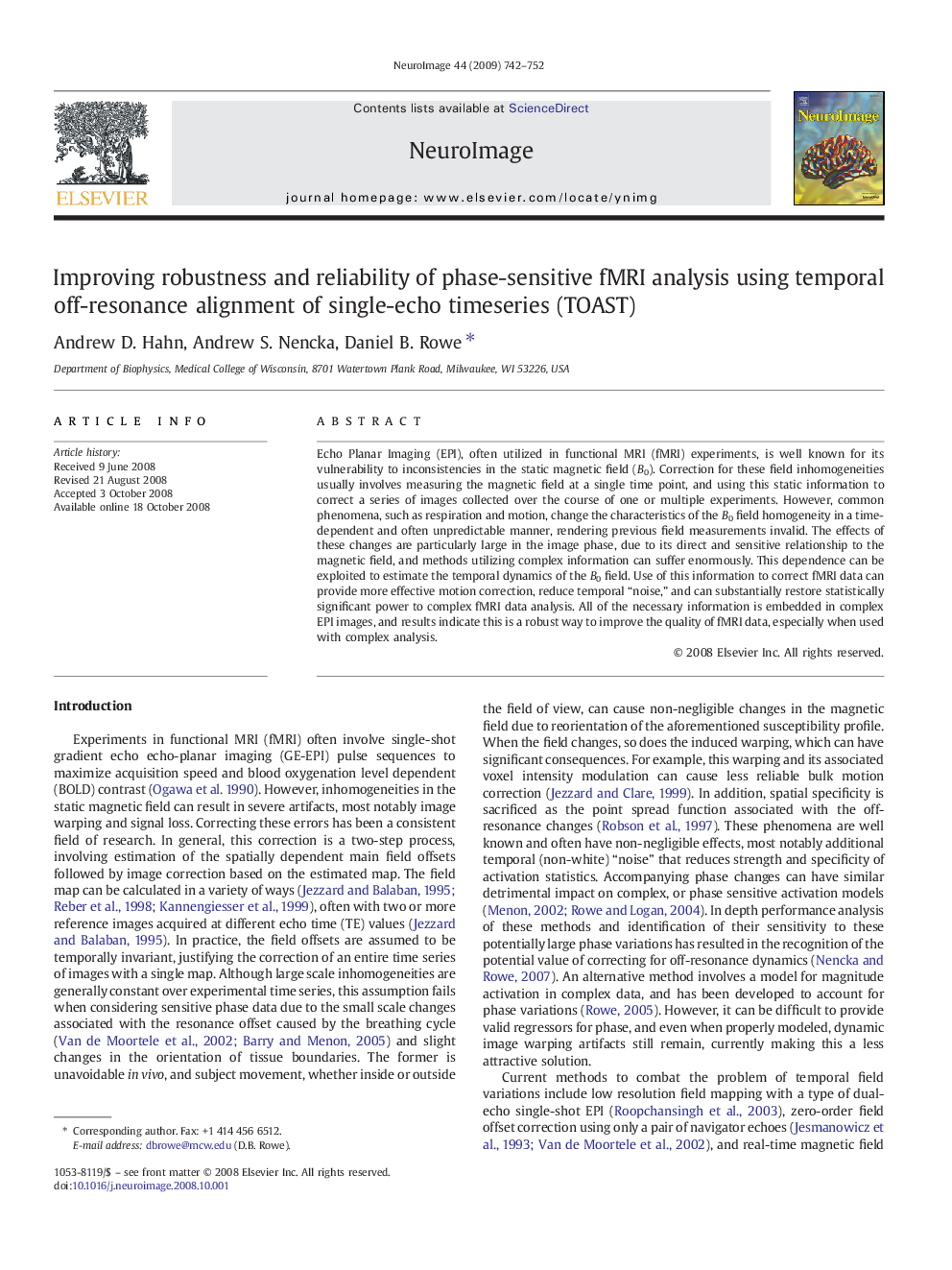| Article ID | Journal | Published Year | Pages | File Type |
|---|---|---|---|---|
| 6038326 | NeuroImage | 2009 | 11 Pages |
Abstract
Echo Planar Imaging (EPI), often utilized in functional MRI (fMRI) experiments, is well known for its vulnerability to inconsistencies in the static magnetic field (B0). Correction for these field inhomogeneities usually involves measuring the magnetic field at a single time point, and using this static information to correct a series of images collected over the course of one or multiple experiments. However, common phenomena, such as respiration and motion, change the characteristics of the B0 field homogeneity in a time-dependent and often unpredictable manner, rendering previous field measurements invalid. The effects of these changes are particularly large in the image phase, due to its direct and sensitive relationship to the magnetic field, and methods utilizing complex information can suffer enormously. This dependence can be exploited to estimate the temporal dynamics of the B0 field. Use of this information to correct fMRI data can provide more effective motion correction, reduce temporal “noise,” and can substantially restore statistically significant power to complex fMRI data analysis. All of the necessary information is embedded in complex EPI images, and results indicate this is a robust way to improve the quality of fMRI data, especially when used with complex analysis.
Related Topics
Life Sciences
Neuroscience
Cognitive Neuroscience
Authors
Andrew D. Hahn, Andrew S. Nencka, Daniel B. Rowe,
